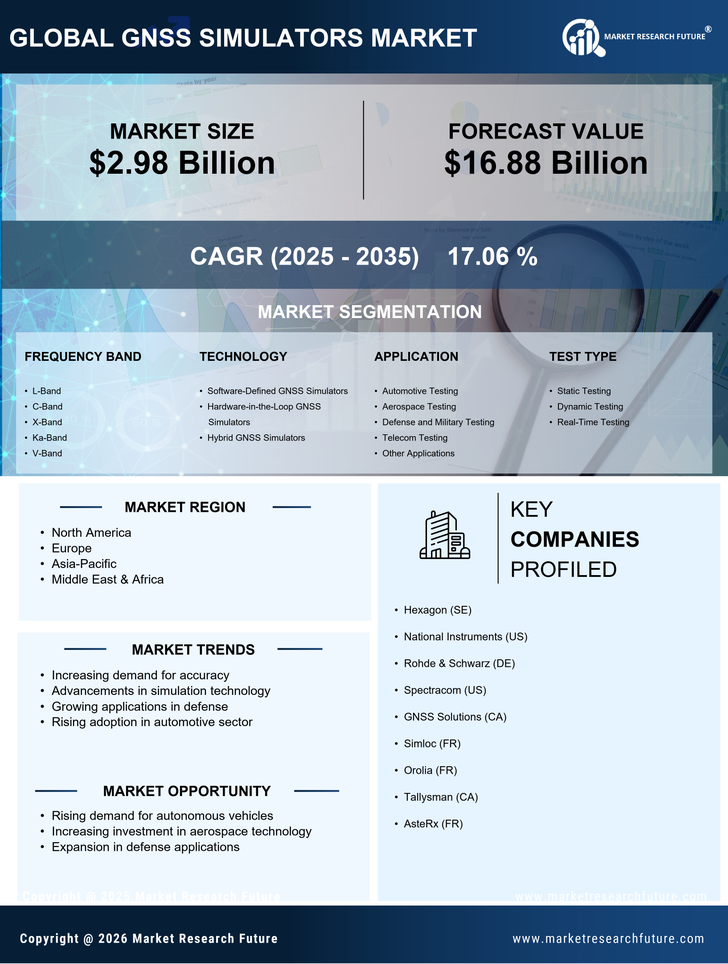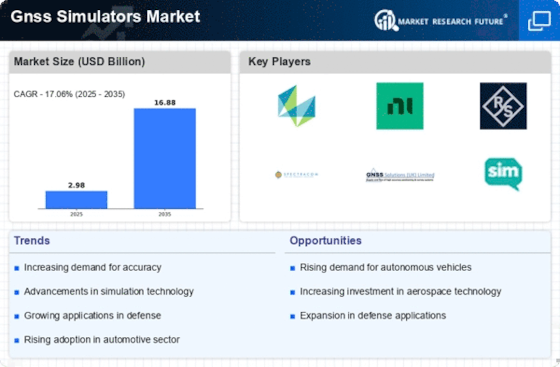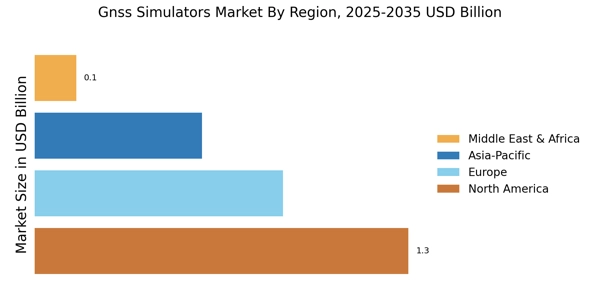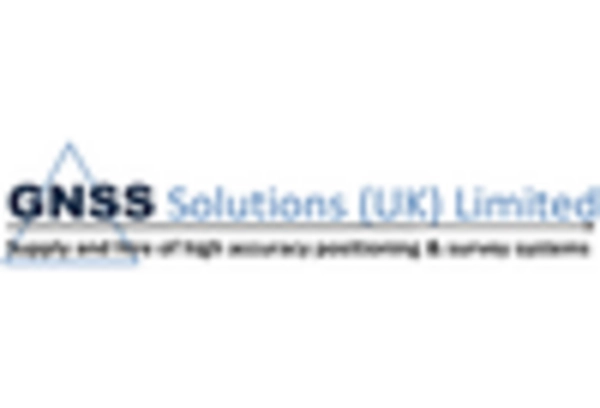Advancements in Technology
Technological advancements play a crucial role in shaping the Gnss Simulators Market. The integration of artificial intelligence and machine learning into GNSS simulation systems is enhancing their capabilities, allowing for more sophisticated testing and validation processes. For instance, the introduction of software-defined GNSS simulators enables users to simulate various scenarios with greater flexibility and accuracy. This evolution is expected to drive market growth, as organizations increasingly adopt these advanced systems to improve their testing methodologies. Furthermore, the market is anticipated to witness a compound annual growth rate of 8.5% from 2025 to 2030, indicating a robust demand for cutting-edge GNSS simulation technologies.
Rising Demand for Precision Navigation
The increasing reliance on precision navigation across various sectors is a primary driver for the Gnss Simulators Market. Industries such as aerospace, automotive, and telecommunications are experiencing heightened demand for accurate positioning and navigation solutions. This trend is particularly evident in the aerospace sector, where the market for GNSS-based applications is projected to reach USD 3.5 billion by 2026. As organizations seek to enhance operational efficiency and safety, the need for advanced GNSS simulators that can accurately replicate satellite signals becomes paramount. Consequently, manufacturers are investing in innovative technologies to meet this demand, thereby propelling the growth of the Gnss Simulators Market.
Regulatory Compliance and Safety Standards
Regulatory compliance and safety standards are becoming increasingly stringent across various industries, thereby driving the Gnss Simulators Market. Organizations are required to adhere to specific guidelines to ensure the safety and reliability of their navigation systems. For instance, the Federal Aviation Administration (FAA) has established regulations that necessitate rigorous testing of GNSS systems in aviation. This regulatory landscape compels companies to invest in advanced GNSS simulators that can facilitate compliance with these standards. As a result, the market is likely to experience growth as organizations seek to mitigate risks associated with non-compliance and enhance the safety of their operations.
Expansion of Internet of Things (IoT) Applications
The proliferation of Internet of Things (IoT) applications is emerging as a significant driver for the Gnss Simulators Market. As IoT devices increasingly rely on accurate positioning data for functionality, the demand for GNSS simulators that can effectively test these systems is on the rise. Industries such as smart cities, agriculture, and logistics are leveraging GNSS technology to optimize operations and improve efficiency. The market for IoT-based GNSS applications is expected to grow substantially, with estimates suggesting a potential increase of 15% annually through 2030. This trend highlights the critical role of GNSS simulators in ensuring the reliability and performance of IoT devices, thereby fostering market growth.
Growing Investment in Defense and Military Applications
The defense and military sectors are significantly contributing to the expansion of the Gnss Simulators Market. With nations prioritizing the enhancement of their defense capabilities, there is a marked increase in investments in GNSS technologies for navigation and targeting systems. The Gnss Simulators Market is projected to reach USD 1.2 billion by 2025, driven by the need for reliable and secure positioning systems. As military operations become increasingly reliant on GNSS for mission success, the demand for high-fidelity simulators that can accurately replicate real-world conditions is expected to surge. This trend underscores the strategic importance of GNSS simulators in defense applications.


















